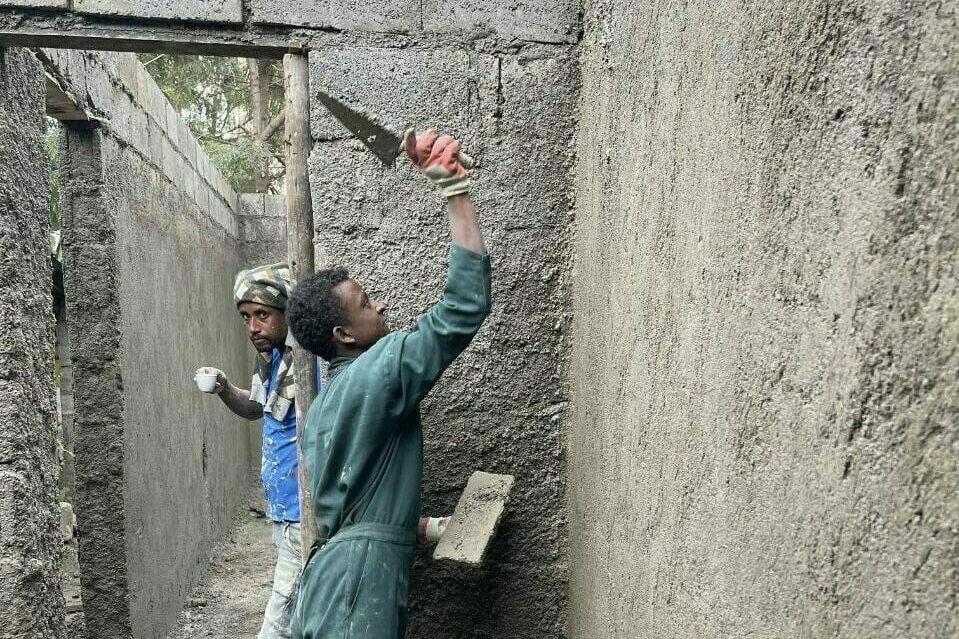Skills development and employment: key aspects in the transition from a life on the streets to a life of stability
Kalid Nasir, an Ethiopian entrepreneur, started his charity foundation in 2020 during the Covid-19 pandemic by providing 150 homeless people with food, shelter and medical support. The primary goal of the foundation is to help individuals transition from the streets to a life of stability, personal development and self-sufficiency.
Besides housing, key aspects of this transition are skills development and employment. With support of Invest for Jobs an employability training was developed that encompasses elements such as communication skills, problem solving as well as habit development to be ready for a job, e.g. professional and neat appearance, self-discipline to go to work, etc. Additional psychological support is being provided if needed.
 © GIZ // on-the-job training
© GIZ // on-the-job training
After the employability training the beneficiaries have two options: The first one is an on-the-job training in one of the companies of the Wendem Kalid Foundation network based on their preferences and previous work experience. The companies are active in different sectors such as banking, catering, laundry or construction. Once the on-the-job training is completed the trainees will receive a job offer or will be connected with another company of the Wendem Kalid Foundation network for employment.
The second option is a coaching for self-employment where the trainees learn for example how to create a business plan and how to establish market linkages. Also, a workspace and necessary tools (e.g. for sewing) are provided by the foundation to establish an own company.
Both options ensure that the beneficiaries have a stable environment, a decent income, are self-sufficient – and no longer live on the streets of Addis Ababa.